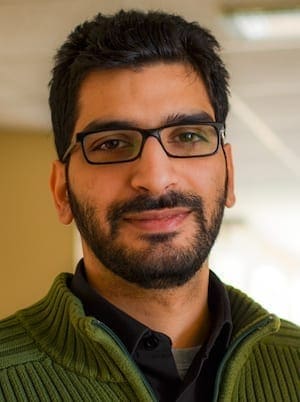The Facebook page of an Egyptian friend of mine was deactivated recently following his arrest by government authorities so that the opinions he expressed could not be used against him during investigations.
This seeming human rights violation by Egyptian authorities is symptomatic of a greater and general regression with respect to fundamental human rights in the stable states in the Middle East and North Africa (MENA).
This month, the United Nations and Human Rights Watch accused Turkish security forces of committing serious human rights violations against Turkish civilians and Syrian refugees. Media, freedom of speech and freedom of opinion are threatened amid political and security tensions.
In Tunisia, Egypt and Israel human rights activists risk prosecution and the freezing of their assets.
Earlier this month, Egypt arrested members of a satirical street troupe for their improvised street films, critical of the Egyptian president, which went viral.
Even the Palestinian Authority in Ramallah followed suit this month and detained a 27-year-old for his Facebook posts.
This month, Israel jailed a Palestinian beautician over her Facebook post. Israel had also detained a circus trainer and performer.
A Palestinian journalist was sentenced to nine months in Israeli jails for “Facebook incitement,” while Israelis were freely shouting “Death to the Arabs” in a Tel Aviv rally during the same period.
In April 2016, Amnesty International condemned Israeli statements calling for violence and harm against peaceful activists demanding the boycott of Israel until it complies with international law.
While Israel has killed nonviolent peace activists in the past, public threats against boycott movement activists are new.
Last week, after 25 years of bringing cases to Israel’s military court and supporting investigations into the killings of Palestinians, B’Tselem, a foremost Israeli human rights group has said “there is no longer any point” to submitting complaints.
“B’Tselem’s cooperation with the military investigation and enforcement system has not achieved justice, instead lending legitimacy to the occupation regime and aiding to whitewash it,” their report noted.
In March, Bahraini security forces arrested prominent Shiite human rights activist Zainab al-Khawaja and her 15-month-old son.
Bahrain’s population consists of a majority of Shiites ruled by a Sunni minority, who remain in power with the military support of the Arab Gulf States.
Morocco is currently objecting to a damning report by the United States Bureau of Democracy, Human Rights and Labor titled Country Reports on Human Rights Practices for 2015.
This report mentions widespread disregard for the rule of law by security forces who are infringing on freedom of speech and press, limiting freedom of assembly and association and restricting the right to practice one’s religion.
And one of the longest standing human rights issues in the Gulf States, migrant rights, is nowhere near a solution.
A BBC team was invited last year by Qatar’s prime minister’s office to see improvements for foreign workers in Qatar. Qatari police arrested the BBC team soon after they went off independently “gathering additional material for their report.”
This increase in oppression and violations of human rights is taking place with a backdrop of severe regional crises:
- Iranian-Saudi cold war.
- Bombings, killings and war crimes in Syria, committed by all warring parties. One month ago, hospitals were bombed by both government forces and opposition forces.
- The Arab Gulf States’ attack on Yemen, led by Saudi Arabia, with a heavy toll on the civilian population and large-scale destruction. S. Congressman Ted Lieu wrote that either the coalition is grossly negligent in its targeting or is intentionally targeting innocent civilians.
- Israeli occupation of the West Bank, including East Jerusalem, Gaza and the Golan Heights.
- Instability and fighting in Libya with ISIS becoming a bigger threat.
- Renewed tension over the western Sahara between Morocco and the ethnic Sahrawi people who inhabit the disputed western Sahara territory.
- Iraq is in effect divided into three parts, and terror suicide bombings are taking place in Baghdad and elsewhere.
- South Sudan, following its widely celebrated and Western-backed independence, has become embroiled in a gruesome civil war.
- The international community is failing to protect Syrian refugees, and it seems that the asylum system set up after World War II is falling apart.
To further understand the dynamics behind this generalized regression of human rights in the MENA region, we need to understand the West’s collusion with human rights violations in this region.
This is not a new assertion. Western governments are led by their (perceived) foreign policy interests in the Middle East and North Africa, which include energy concerns, natural resources, military presence, business interest, Israel and, more recently, stemming the flow of asylum seekers.
 Wissam al-Saliby is the partnerships manager at Arab Baptist Theological Seminary in Lebanon. A version of this column first appeared on the Institute of Middle East Studies blog and is used with permission. He blogs at Ethiopian Suicides and Lebanonesia, and you can follow him on Twitter @lebanonesia.
Wissam al-Saliby is the partnerships manager at Arab Baptist Theological Seminary in Lebanon. A version of this column first appeared on the Institute of Middle East Studies blog and is used with permission. He blogs at Ethiopian Suicides and Lebanonesia, and you can follow him on Twitter @lebanonesia.
Editor’s note: This is the first article in a two-part series. Part two is available here.
Wissam al-Saliby is a UN Geneva Advocacy Officer with the World Evangelical Alliance.

